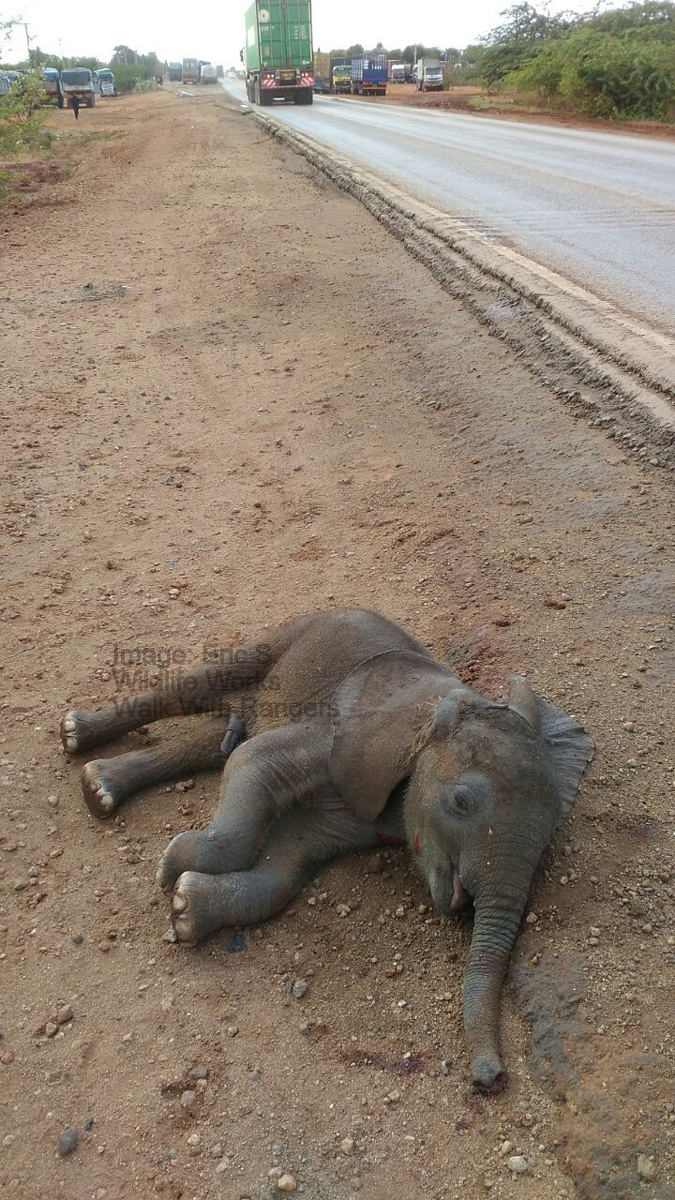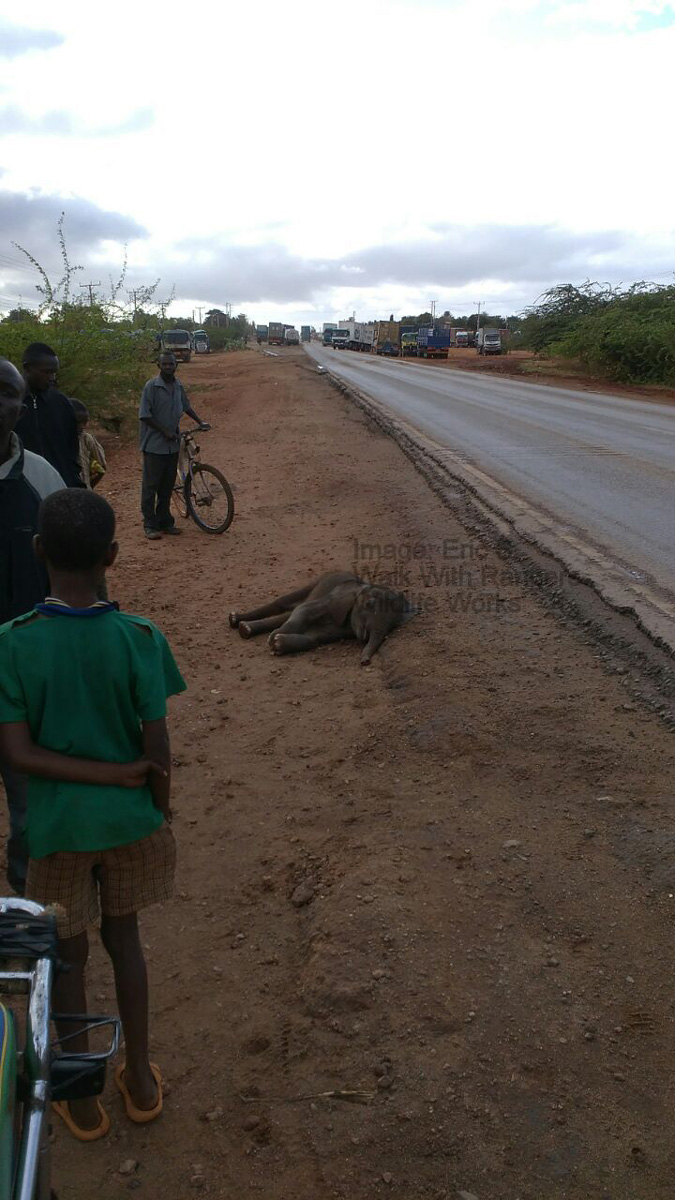The early morning phone call came into the Wildlife Works offices in Tsavo, Kenya. A baby elephant had been hit by a large truck. Written by Raabia Hawa, Founder of Walk With Rangers
Head ranger Eric Sagwe responded swiftly, using the donated anti-poaching vehicle. He set off, with numerous thoughts running through his mind, “They must be mistaking it for another smaller animal, surely not a baby elephant! What if it’s still alive?”
When he arrived at the scene, people had begun to gather around…

There he lay, an elephant not more than two or three weeks old, his young life terminated. Just like that.
According to community members who had witnessed the incident, a family of elephants crossing the busy highway that dissects East and West Tsavo turned back when faced by the barrier of the new elevated Mombasa-Nairobi standard gauge railway – the biggest infrastructure project in Kenya since the country’s independence. Unaware of the underpasses provided for elephants, the herd turned back in the confusion and panic, and the little one was struck by an oncoming truck.
People crowded the scene, eager to utilise the calf for meat. Thankfully, Eric wasn’t going to have any of it and carried the calf’s lifeless body into the vehicle. With a heavy heart, he drove deep into the bush, where he left the baby elephant in a peaceful spot.
The controversial railway line has impacted on communities living around Kenya’s famed Tsavo ecosystem, with human-wildlife conflict cases rising significantly since the construction began; putting pressure on wildlife, and inevitably transferring that pressure to people – a fact that perhaps was overlooked during the planning process.

My regular drive to Tsavo regularly reveals numerous roadkills – from hyenas to mongooses, squirrels, giraffes and even endangered Grevy’s zebras. Even lions, the majestic symbol of Kenya’s Coat of Arms, have been forever silenced on this highway.
Tsavo’s elephants have been an iconic species for Kenya since it’s independence. They bring in much-needed revenue for the tourism industry, thereby contributing significantly to the nation’s GDP and to employment levels. We revere elephants and respect their close family structures and contributions to the ecosystem services we all enjoy, even in the cities.
We mourn the loss of such a young life, but perhaps this young elephant’s legacy is to help us inform you what is happening here in Tsavo.
To comment on this story: Login (or sign up) to our app here - it's a troll-free safe place 🙂.![]()






